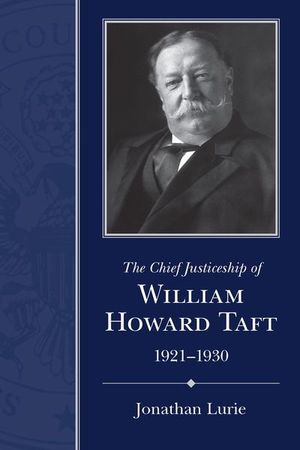The Chief Justiceship of William Howard Taft, 1921–1930
A study of the Supreme Court tenure of the only US president to serve as chief justice provides a unique perspective on 1920s America.
In this book, Jonathan Lurie offers a comprehensive examination of the Supreme Court tenure of the only person to have held the offices of president of the United States and chief justice of the United States Supreme Court. William Howard Taft joined the Court during the Jazz Age and the era of prohibition, a period of disillusion and retreat from the idealism reflected during Woodrow Wilson’s presidency. Lurie considers how conservative trends at this time were reflected in key decisions of Taft’s court.
Although Taft was considered an undistinguished chief executive, such a characterization cannot be applied to his tenure as chief justice. Lurie demonstrates that Taft’s leadership on this tribunal, matched by his productive relations with Congress, in effect created the modern Supreme Court. Furthermore he draws on the unpublished letters Taft wrote to his three children, Robert, Helen, and Charles, generally once a week. His missives contain an intriguing mixture of family news, insights concerning contemporaneous political issues, and occasional commentary on his fellow justices and cases under consideration.
Lurie structures his study in parallel with the eight full terms in which Taft occupied the center seat, examining key decisions while avoiding legal jargon wherever possible. The high point of Taft’s chief justiceship was the period from 1921 to 1925. The second part of his tenure was marked by slow decline as his health worsened with each passing year. By 1930 he was forced to resign, and his death soon followed. In an epilogue Lurie explains why Taft is still regarded as an outstanding chief justice—if not a great jurist—and why this distinction is important.
“Conflicts from the early twentieth century endure, and Lurie gives us old and new perspectives from which to understand a living Constitution.” —Journal of American History
BUY NOW FROM
COMMUNITY REVIEWS

